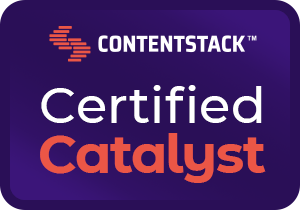Unconventional Wisdom: Thriving in a 50/50 Business Partnership with Your Best Friend
2023-06-08
My business partner is also my best friend. We are also 50/50 partners. Every decision we make requires two yeses. Despite the near ubiquitous advice that having a partnership like this is a disaster, for us it works. If you're wondering how, it's grounded in three core principles that I'll share.
A no is a no to one thing. A yes is a no to many things.
When you are in a 50 50 partnership, in order to get a yes to any decision, you require two thumbs up. This means the default to any decision is no. I often hear the criticism of partnerships that in the event of a deadlock you require a single 51% shareholder to break it. That's only true if you're fishing for a yes. The reality is, there are no deadlocks, there's two thumbs up and then there's a no.
Defaulting to no is not a disadvantage. In fact, we think that it's the most advantageous position you can take. No is a no to one thing, yes is a no to many things. By defaulting to no, we keep options open. If our default was yes, the opportunity cost of a system like that to a business could be immense. Defaulting to no is powerful, and needing two thumbs up is a great way to ensure the answer is always no, until it's not. This brings us to the second core principle.
If it's not a hell yes, it's a no.
We love this line and we think of our two thumbs up system as the ultimate way to keep us honest. It's easy to trick yourself into a half-hearted yes, but in our world it's dam near impossible to get two of us to give a feeble thumbs up.
Think about how often you've decided to let something go, or just say yes out of exhaustion. How many times have we had a bad feeling in our gut and ignored it or thought we were being silly. When you're alone, it's easy to dismiss your own hesitation, but when you have to act enthusiastic about that same decision to someone else it's much harder to be dishonest.
Many times neither of us is a strong yes nor a strong no, the so called deadlock. When that happens we just look at each other and say, "it's just not a hell yes," and happily default to no. Two guts are better than one.
Who does this matter more to?
There are many decisions in a business like hours where one of us is more qualified than the other to make a decision. For example when deciding on our hosting infrastructure, the expertise falls on me. When deciding what analytics tools we're going to adopt, the expertise is with Justin.
In these situations it's common for the partner that's out of their depth to challenge the other somewhat harshly. We don't take this personal, ever. This is a part of making a good decision and when you're outside of your area of expertise asking tough, challenging, and sometimes stupid questions is a great way to probe the more knowledgeable partner for their confidence in the decision. It's also just a great way to learn more about the other parts of the business.
In the end these decisions come down to who does this matter more to? When it comes to infrastructure and technology, my team and I are the one's that have to live with the decision. When it comes to marketing tools, Justin and his team must live with that one. So when out of your depth, you must recognize that this decision is more important to the other partner and you should trust their judgment. Conversely, when the other partner is trusting your judgment you should take that decision with caution and understand the power you hold. Never give a counterfeit yes, and never ignore your gut intuition when your partner is doesn't have the spidey-sense to check you.
That's it, the three principles to finding strength in a 50/50 partnership. We live by these three daily and it's taken us this far with little to no conflict. We accept the rules, and a whole bunch of hell yeses later we're still standing here. It's also important to remember to just have fun. That's the whole point of running a business as friends, but when you're in the trenches you can't always just be friends. So make time for that. Play softball, grab a bite to eat, it's ok to talk business, but it's also ok to just shoot the shit and forget all the balance sheets, clients, cash flows, and myriad of decisions you have waiting for you at the office. Celebrate nothing but the fact that you're just out here, having a good time, building the dream together. In the end, all the chips go back to the house anyway.






